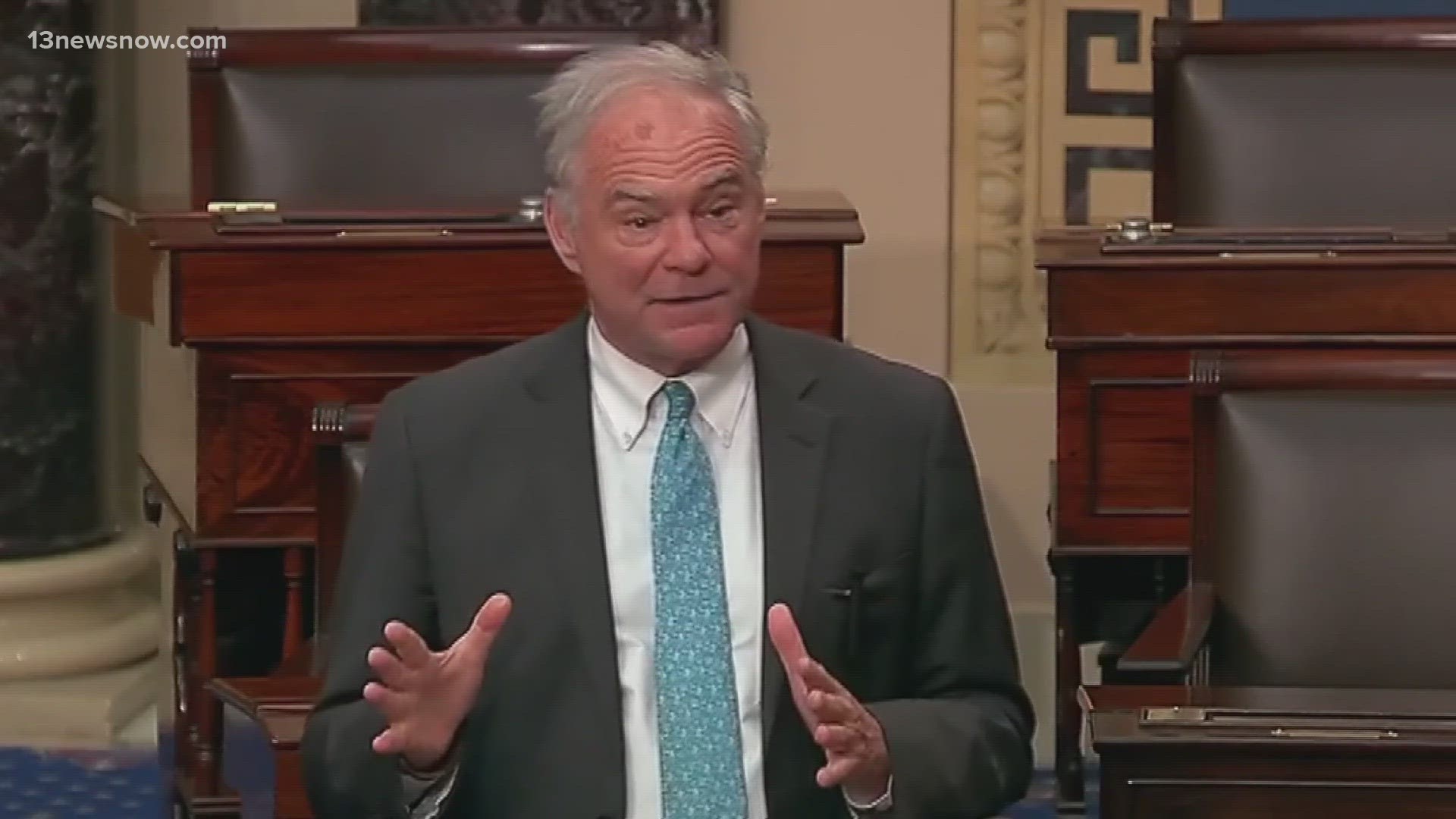WASHINGTON — The U.S. Senate is now working on the nation's most important military policy bill: the National Defense Authorization Act (NDAA) for 2024.
There will likely be major differences between what the Senate comes up with, and what the House has already passed.
The $886 billion NDAA as passed last Friday by the House authorizes the Navy to buy a total of 10 new ships and gives a 5.2% pay raise to the troops.
But it also includes controversial amendments that overturn the Pentagon's abortion leave policy, restrict medical care for transgender troops, eliminate military diversity initiatives, and bar the Pentagon from implementing climate change initiatives.
Hampton Roads Republicans Rob Wittman and Jen Kiggans voted yes. Hampton Roads Democrats Bobby Scott and Jennifer McClellan voted no.
Now, the Senate begins work on its own version of the bill.
"We want both sides to have input, but neither side should derail the bill. We should avoid the chaos we saw last week in the House that greatly hindered their NDAA process. So far, we've avoided that." said Senate Majority Leader Chuck Schumer (D-NY).
Sen. Tim Kaine (D-Virginia) chairs the Senate Seapower Committee. He said that, despite the current major differences, he is confident that ultimately, the two chambers will reconcile their competing versions of the NDAA, and a consensus will be reached.
"I think we'll get a defense bill, but we've got to get the Senate version done first. And we get into conference, and we figure it out. We've done defense bills every year for the last 62. I don't think we're going to stumble over this one."
On Wednesday, Kaine, along with Florida Republican Sen. Marco Rubio, introduced an amendment that stops Presidents from withdrawing the U.S. from NATO without Congressional approval.
Kaine said he will also introduce a second amendment that endorses the framework for the "AUKUS" agreement that will lead to Australia getting U.S. Navy Virginia-class nuclear-powered submarines by the 2030s.

